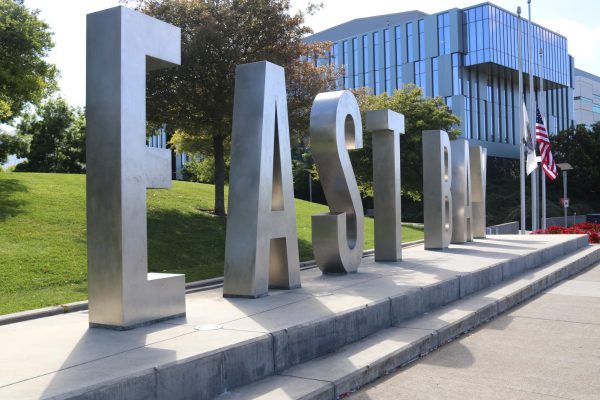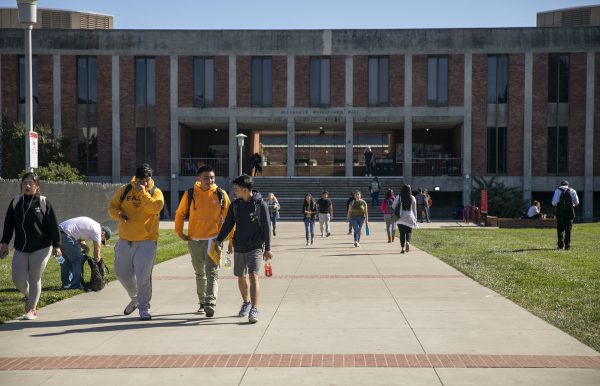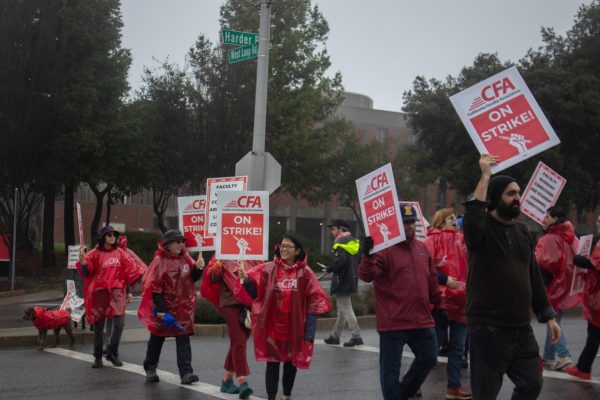Weathering The Storm and Sailing Past
February 22, 2022
Maximizing chances of success on campus before graduation
As vigilance and regulations over COVID-19 wane, students are bracing to enter a post-pandemic economy. Anxiety continues to loom over the soon-to-be graduates, as mass unemployment and a pivot towards digital workplaces in lieu of pandemic conditions have shuttered opportunities for internships, professional mobility, and networking.
With so many standing before uncertainty, how is our university assisting students in securing their next steps?
“The biggest concern of our alumni during the early days of the pandemic was job security, [albeit now] concerns over stagnating wages, inflation, and social interaction are more prevalent,” said Travis Nelson, Director for Alumni Engagement.
While the university cannot account for industry salaries alone, Nelson believes that promoting an alumni network provides a robust base for job prospects: “We are trying to foster a culture of an ‘alma mater:’ like how a child could go to their mother to ask for help, we are here to help out graduates.”
With how rife the Bay Area is with quality education, an alumni network would allow more CSUEB students to become visible and find their footing in the job market, especially in competitive fields, such as IT and STEM.
“Access-wise, it is difficult for [CSUEB] alumni to get noticed for jobs in the Silicon Valley since they don’t recruit here as much, but those who make it there are representative of the grit that our students possess,” claimed Nelson, accentuating prior experience and established work ethic as top qualities of university graduates.
By encouraging alumni to return to campus, graduates would temper expectations, warn of industry malfeasance, or address any anxieties that students might have. Conversely, current and future students would be given an opportunity to inquire about practical aspects of their chosen career and ask for guidance in navigating the job market, fashioning them into more enticing hires for any prospective employer.
Besides a working background, CSUEB is notable for its social mobility potential, and racial diversity —wherein 63% of all graduates are first-generation college students, 63% are female, and 35% belong to an underrepresented minority group. It is this wealth of diverse talent that the Alumni Engagement aims to export into the Californian workforce through empowerment programs such as the East Bay Affinity Network, CSU Systemwide Young Black Men’s Consortium network, and Women on the Rise program.
Such an endeavor to rekindle links between alumni and campus has seen major strides in recent years since the abridgment of graduation and career services in the mid-2000s. “The institution has not done a good job at helping our graduates,” admitted Dr. Richard Watters, Executive Director of Alumni Engagement, which his team has sought to rectify with increased emphasis on funneling alumni back with professional, networking, and social events.
Since the beginning of the pandemic, alumni engagement has moved online as webinars, which have contributed to a surge in attendance. “Our engagement quota is to increase attendance by 20% from year to year, … [but in 2021], we have exceeded that by 70%. We were able to be really responsive,” Nelson stated.
As for advice to fresh and upcoming graduates, Nelson recommends starting job search early and advises not to take rejection personally.
If you would like to participate in networking events with alumni, the Career Boost conference hosted by the Alumni Engagement Office will take place in April; exact dates and modalities to be determined. If you are interested in connecting with alumni or professional development, please contact Travis Nelson at [email protected] for more information.

















